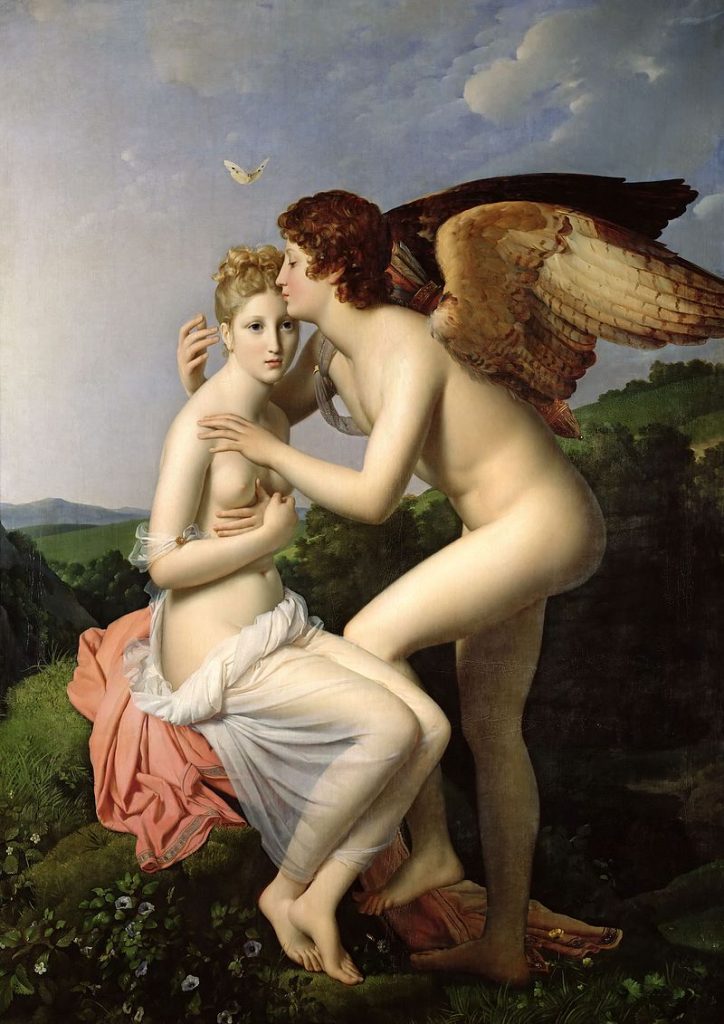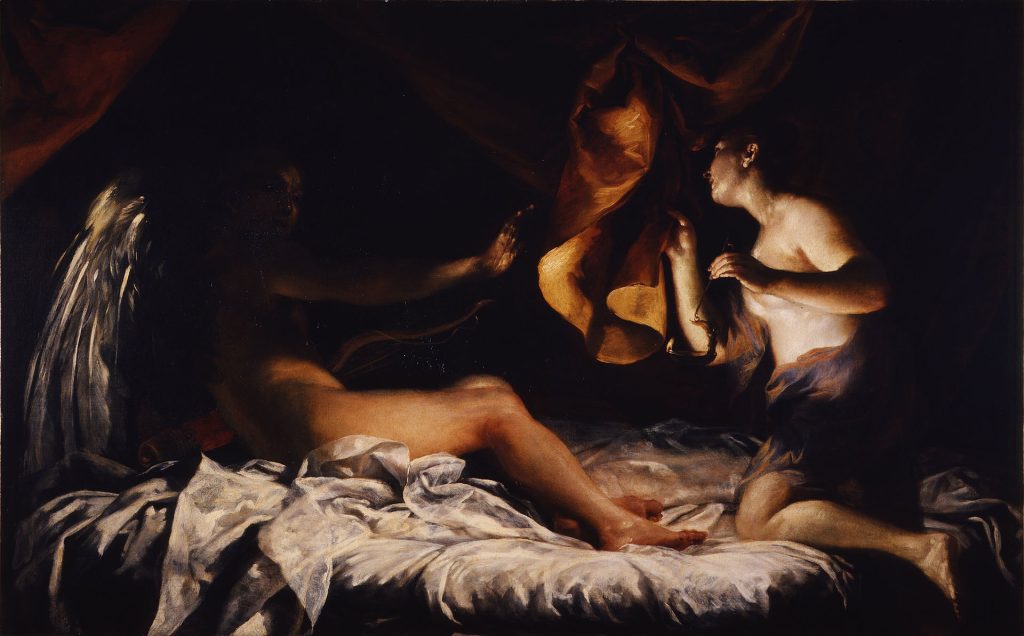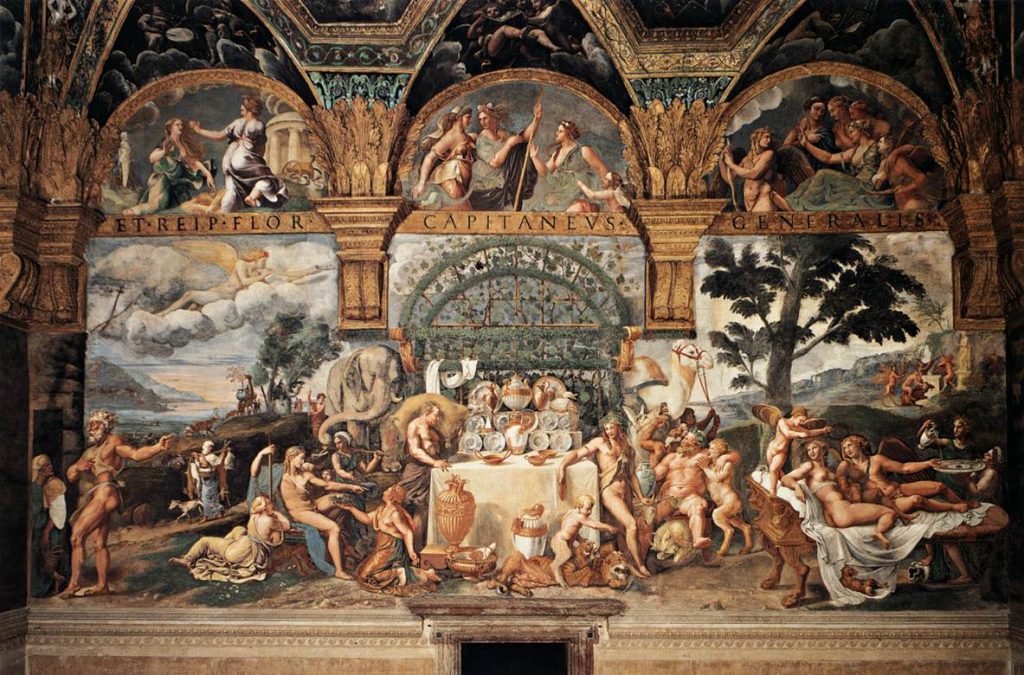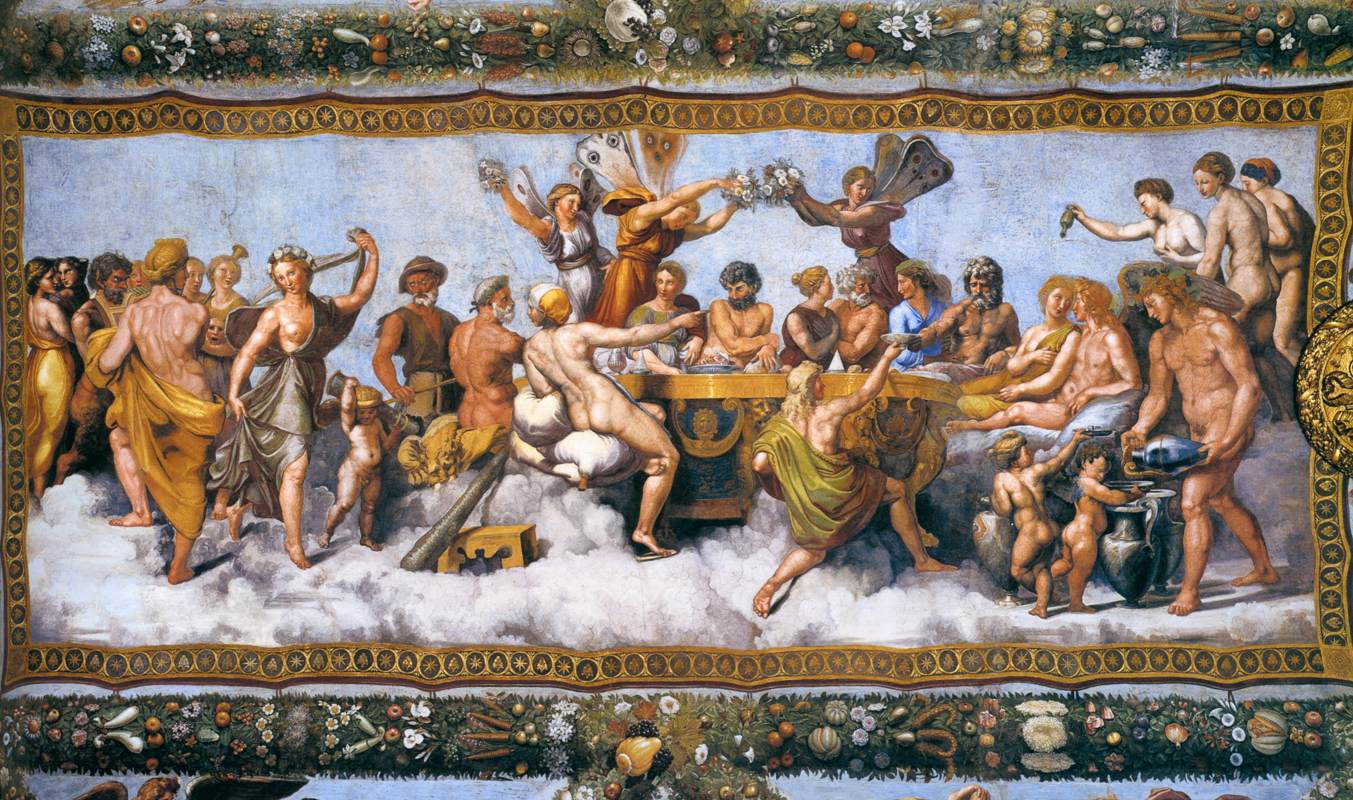Written by Edward Whelan, Contributing Writer, Classical Wisdom
There are many beautiful myths from Classical civilization. One of the most beautiful of all is that of Psyche and Cupid. Unlike most ancient legends, it is a romantic tale and has a happy ending. This myth has been enormously influential, and it has helped to shape modern romantic literature and even modern conceptions of love.
Origin of the myth
The main source for this myth is one of the greatest Roman novels, the Metamorphoses by Apuleius, which dates to the second half of the 2nd century AD. The story is narrated by the main character Lucius to a young bride who has been kidnapped by pirates. However, the story is much older and there are depictions of Cupid and Psyche in Hellenistic Greek art. Many believe that there are elements taken from Mystery Religions in the story. These were cults that promised their adherents salvation, which were popular throughout the Classical era.
The story of Psyche and Eros
Psyche was the daughter of a king and queen and she was stunningly beautiful. She was so beautiful that she was even compared to some of the Goddesses. This drove Aphrodite, or Venus in Roman narratives, the Goddess of Love, mad with jealousy. She devastated the kingdom of Psyche’s father with the plague. Aphrodite told the king she would only end the plague if she sacrificed Psyche to a sea-monster. When the King was tying his daughter up, Cupid, the son of Aphrodite, saw Psyche and he instantly fell in love with her. The winged god rescued Psyche and was so enamored with her that he married her, even though she was a mere mortal.

Psyche and Amor, also known as Psyche Receiving Cupid’s First Kiss (1798), by François Gérard: the butterfly hovering over Psyche symbolizes her innocence, prior to sexual awakening.
Cupid asked his new love never to look at his form. He could not let a mere mortal look upon him as she could be harmed. Despite this, the couple was happy and Cupid turned out to be a great husband. Psyche was so happy that she did not ask to see her husband and had no idea that he was a God. Cupid, as a God, could provide his wife with a lavish lifestyle. Now the two sisters of Psyche heard about this and they became insanely jealous. They began to plant seeds of doubt in Psyche’s mind about her husband. They asked her ‘why would he not let himself be seen?’
Psyche could no longer restrain herself and one night when her husband was sleeping, she brought a candle into the darkened bed-chamber. Psyche was transfixed by her husband and his otherworldly good looks. Cupid woke up to see his wife standing over him. She had disobeyed him and in a rage, he flew away. He returned to his mother, who had always hated Psyche and been opposed to her marriage to her son. Psyche was disconsolate and she vowed to do all she could to win her husband back.

Amore e Psiche (1707–09) by Giuseppe Crespi: Lychnomancy, a form of divination or spirit conjuring, is thought to be represented here in Psyche’s use of the lamp to see the god.
Psyche, with great bravery, approached Aphrodite and asked her how she could win her husband back. Aphrodite decided to torment her and set her four tasks. If Psyche could complete these tasks, then she would help her to become reconciled with Cupid. She was able to accomplish the first three tasks, thanks to her ingenuity, but the last task was by far the most challenging.
Aphrodite asked Psyche to descend to the underworld and to retrieve Persephone’s special beauty ointment. This was an impossible task for any mortal. However, Psyche went to a speaking tower who told her how to evade Charon and Cerberus and enter the realm of the dead, unscathed. The voice from the tower also told her how to approach Persephone, the Queen of the Underworld. She was successful and she managed to get the magical cream. Psyche became curious and wondered what the cream would do for her—would it make her perfect? She opened the box, and when she did, she immediately fell into a deathlike slumber. Cupid heard of this and he immediately went to help his beloved.
Marriage of Cupid and Psyche
Cupid flew to Zeus, or in Latin sources, Jupiter in Olympus, and asked him to intervene. Zeus convened an assembly of the Gods and they decided that Aphrodite had been too harsh. Zeus agreed to bring Psyche back to life and allow her to enter Olympus and drink ambrosia, which made her immortal. Psyche became a Goddess and she and her husband had a daughter, Voluptas, who became the goddess of Pleasure. The marriage of Psyche and Cupid became a favorite topic of Classical and later Renaissance artists.

Voluptas is pictured with her parents, Cupid and Psyche, at far right in Banquet of Amor and Psyche by Giulio Romano.
The meaning of the myth
It is widely believed that the myth is an allegory. Psyche was regarded as the personification of the soul. Many believe that it shows how the soul can fall to its death by engaging in sexual love, represented by Cupid. The moral of the story was believed to be the dangers of excessive passion and sexuality. There are other interpretations of the myth. One is that it represents the story of the soul’s death and resurrection, which is central to the Mystery Religions of the Ancient Greeks, such as Orphism.
The influence of the story of Psyche and Cupid
The myth was adapted by many poets and writers. The story inspired many writers to compose romantic love stories. The elements of the myth, the separation of young lovers and their eventual reunification, was repeated in countless love stories. In this way, the myth has been crucial in the construction of modern ideas about romantic love.
Conclusion
The myth is an unusual one, in that it has a happy ending and celebrates romantic love. It is almost certainly an allegory related to the fate of the soul. This fable was important as it greatly influenced romantic literature and these works have changed the way we understand human love and romance.










One comment
My first comment! Have been a worshipper of The Ancients since childhood. May I suggest the tone poem by the Belgian/French composer Cesar Franck entitled “Psyche”, composed in 1886 if I remember correctly. It is lush and generates many images… (I listen to Classical Music with eyes closed in order to let it speak to me in images as well as sound, which summons the images…). Anyway, Franck’s version has Psyche and Eros. Of particular beauty is the second portion entitled “Les Chardins d’Eros.” It musically describes Psyche being carried aloft to the “gardens of Eros” by Aeolids, who are attendants to Aeolos, God of Winds. Priceless! Oh, Ye Ancients! May the well of your inspiration live forever! (As I am sure it will!)
What The Ancients Inspired with their various Arts are the most priceless and uplifting Gnosis which will ever belong to Mankind; thus do I decree! (Ok, so I’m a nobody, but will wager I will be right!)
Our apologies, you must be logged in to post a comment.